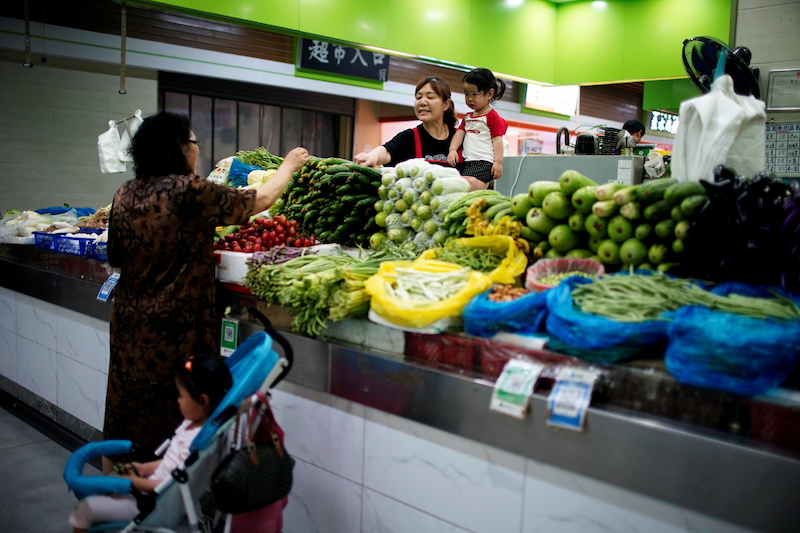China’s consumer inflation cooled more than expected in March, rising by just 0.1% from a year earlier, official data showed on Thursday.
Producer price deflation has also persisted, which means further pressure on policymakers to launch more stimulus because consumer demand is still soft.
Worrying deflationary pressures in the world’s second-largest economy appear to be slowly easing, though a protracted property crisis is still weighing heavily on consumer and business confidence.
ALSO SEE: Excess Capacity Claim is Wrong, We’re More Competitive: China
The small consumer price figure was a big drop from the 0.7% rise in February, which was the first gain in six months and well under a 0.4% rise predicted by analysts in a Reuters poll.
Data over the January-February period and factory surveys for March had been a relief for Chinese officials seeking to spur a feeble post-Covid recovery, but economists warned of Lunar New Year distortions.
“Seasonal effects definitely played a role – food prices rose sharply during the Chinese New Year in February and subsequently came back down,” Xu Tianchen, senior economist at the Economist Intelligence Unit, said.
“More broadly, the overcapacity issue is passing into prices in a way that will thwart the People’s Bank of China’s efforts to reflate the economy,” Xu added.
Factory-gate and vehicle prices down
“Vehicle prices fell an annual 4.6%, which could suggest manufacturers are introducing deeper price cuts in the distribution and sales process.”
Factory-gate prices fell 2.8% in March from a year earlier, with the producer price index (PPI) widening a 2.7% slide from the previous month and extending a year-and-a-half long stretch of declines. On a month-on-month basis, the PPI fell 0.1%.
“Although consumer prices are no longer falling, rapid investment in manufacturing capacity is still weighing on factory-gate prices,” Julian Evans-Pritchard, head of China economics at Capital Economics, said.
In recent months China has rolled out a raft of incentives to spur household spending including easier car loan rules, but consumers remain cautious about big-ticket purchases amid worries about the sputtering economy and the weak job market.
Earlier this month, China’s central bank vowed to strengthen efforts to expand domestic demand and boost confidence.
Core inflation, excluding volatile food and energy prices, in March was at 0.6% from a year earlier, slower than 1.2% in February. The CPI fell 1.0% month-on-month, cooling from a 1% gain in February and worse than a 0.5% drop forecast by economists.
“Interestingly, CPI inflation surprised on the upside in the US and downside in China,” said Zhiwei Zhang, chief economist at Pinpoint Asset Management.
“This indicates the monetary policy stances in these two countries may continue to diverge as well, hence the gap of interest rates in these two countries will likely persist,” he added.
- Reuters with additional editing by Jim Pollard
























